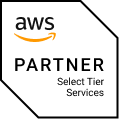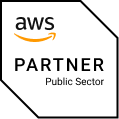Choosing a DevOps as a Service provider is a detailed and careful process that requires thorough research to find the ideal candidate. In this article, we outline guidelines to help you select a diligent and responsible partner for outsourcing high-quality services.
Outsourcing involves delegating tasks or projects to an external team that completes the work independently. This business model ensures efficiency, quality, and timely delivery. In contrast, outstaffing – a type of remote recruiting model – might be more cost-effective in the long run, but it leaves the employer dealing with the human factor, being responsible for the productivity and work pace of the outstaffed workers. Outsourcing, on the other hand, frees you from managing and controlling the project workflow, delivering just the final result.
So, what key factors should you consider to ensure you make the right choice?
Trust
When choosing a DevOps as a Service company, it’s ideal to rely on recommendations. If you don’t have this option, assess the company’s experience. How long have they been in the market? Review their portfolio of completed projects, especially those in the same sector as yours. This is particularly important in sectors like fintech and banking, where strict security regulations can significantly limit or even deny the provider access to the production environment during development. If they have relevant projects, case studies detailing the implementation can be invaluable.
A company’s reputation is a strong indicator of whether you can trust them, especially regarding data security, due diligence, and business practices. A key marker of trustworthiness is the company’s longevity in the market—if they meddled with customer data or caused some significant business disruptions, they likely wouldn’t have survived long.
Expertise
When engaging a third-party contractor, one of the primary concerns is their expertise: do they have the right skills? Can they truly deliver? The best way to verify this is by organizing a meeting between your technical team and theirs. It’s highly advisable to include the principal engineer or the technical lead who will be in charge of your project. This will help you determine two things: 1) whether the provider’s team has the necessary skills to deliver the project, and 2) whether your teams can communicate effectively and work well together—an essential factor for project success.
During the technical interview, you can also assess the company’s expertise with your desired tech stack. It’s crucial to ensure they have strong competence in your system’s core components like cloud platform, database engine, app orchestrator, etc. Don’t be discouraged if they lack experience with supplemental technology; the modern DevOps ecosystem is vast, and no team can master everything. If they have experience with a similar technology, they’re likely to adapt quickly. Unlike in-house engineers, who often work in silos and with the same stack for years, a DevOps as a Service team must constantly learn new technologies and tool integrations as they serve different customers.
As technology sectors expand, having specialized roles within the team is an added benefit. For example, bringing in a specialist for a specific task, such as an SRE, cloud architect, or Kubernetes administrator, is more efficient than relying on one person to handle everything. And this is also another reason why outsourcing is better than outstaffing: does your service company use engineering roles to provide you with a highly skilled team?
Organization of Processes
Once you’ve shortlisted potential candidates, it’s crucial to understand their workflow and project management routines. Key questions to ask include: How is communication with customers organized? How are tasks assigned and managed? How do they keep customers updated on task progress? Do they offer any guarantees on their work? These factors will give you insight into how smoothly your collaboration might run.
Estimating the Scope of Work
Accurately estimating the complexity of a DevOps project requires more than just a phone call. The process should be extensive, thorough, and meticulous. It’s essential to consider both business expectations and developers’ demands to gain a full understanding of existing and potential issues.
A detailed estimation not only provides clarity but also helps minimize unforeseen costs that might arise later. Imagine a scenario where the provider, upon completing their work, charges more because certain issues only became apparent after the project began. This could be a negative experience, especially if your budget is tight. A comprehensive estimation allows you to forecast ongoing expenses and agree on a fixed price for the project.
Standard Agreement Conditions
Carefully review the company’s standard contract, paying particular attention to the terms and conditions. Although these can be customized to your needs, the provider will likely adhere to the standard terms since their processes are tailored to them.
The contract should also include provisions for data safety and the security of your infrastructure, along with liabilities for non-compliance. This demonstrates the company’s diligence and commitment to their responsibilities.
Project Completion and Delivery
For DevOps as a Service, completion should not simply involve signing off on a certificate of acceptance. Providers that insist on this may pressure you to approve the quality of services before you can fully evaluate them. Given the nature of DevOps, the quality of services can only be truly assessed after the project has been live and in use for some time. Reputable companies understand this and include a probation period in their agreements, during which they remain available for technical support and consulting.
SRE and 24/7 Support
Ideally, a DevOps as a Service provider should not only build infrastructures but also offer round-the-clock support and maintenance. Why is this important?
Firstly, the availability of 24/7 support demonstrates the company’s commitment to high-quality service. It shows they are willing to go the extra mile, knowing that their support team will be responsible for handling any issues that arise. A provider that simply completes the work and moves on may be more likely to cut corners, leaving you with a solution that lacks consideration for long-term maintenance.
Secondly, if the company offers Site Reliability Engineering (SRE) services, it likely has multiple locations around the globe to cover different time zones. This global presence is excellent for creating efficient workflows, allowing for better scheduling of shared meetings, real-time communication, and quick issue resolution.
DevOps outsourcing with SHALB
With over 15 years on the market, SHALB has delivered over 300 successful projects across various sectors, including fintech, data science, blockchain, retail, and automotive. This extensive experience is reflected in the AWS partnership certification and positive recognition on the Clutch platform.
SHALB’s core expertise spans DevOps, Kubernetes implementation, and cloud-native technologies, including migration, microservices containerization, infrastructure as code, and multi-cloud environment building. With teams located across various time zones and specialized roles within the organization, SHALB is well-equipped to adapt to the diverse needs of its customers.
The company’s workflow is anchored in Agile principles, emphasizing a stage-by-stage approach. This includes a comprehensive review of a customer’s infrastructure, resulting in a detailed roadmap with suggested improvements and defined tasks. After project completion, we remain available for ongoing maintenance and technical support, with quality assured through the financial responsibilities outlined in the agreement.
When looking to future-proof your infrastructure against the challenges of tomorrow, consider the factors discussed in this article. A provider like SHALB, with proven expertise and a structured approach, could be a strong partner for your journey forward. Book a call or get in touch via online form to learn more.


